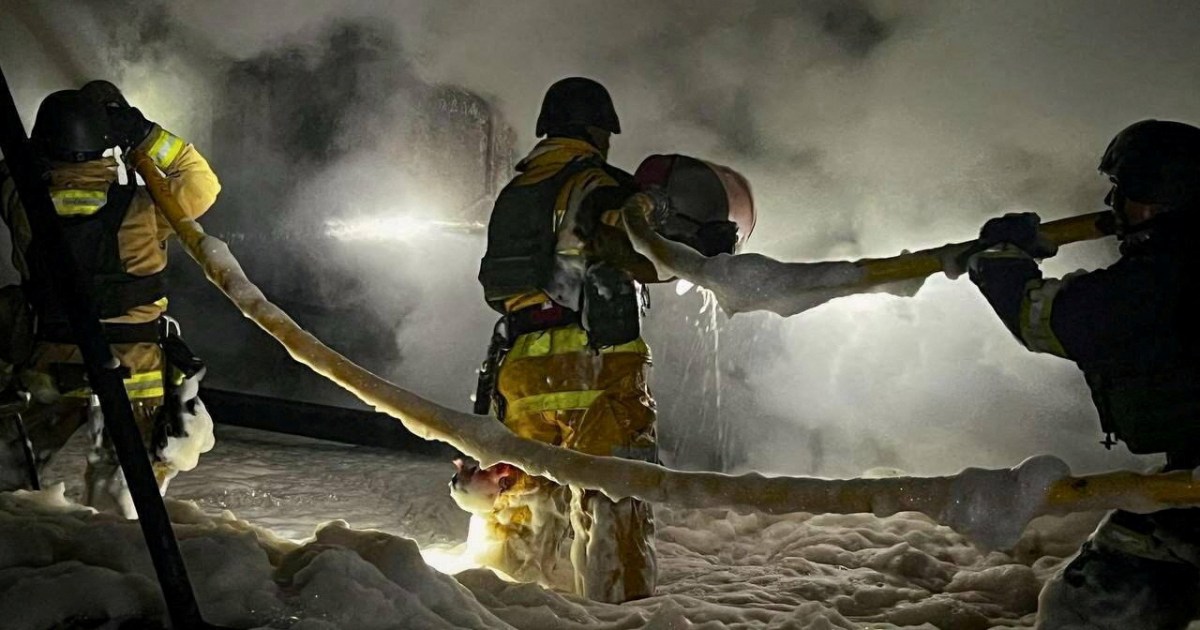The G7 energy ministers, which include Canada, France, Germany, Italy, Japan, the United Kingdom, and the United States, stated in a statement that Russia’s attacks “continue to have devastating social, environmental, and economic consequences on the Ukrainian people.”
Recommended Stories
list of 3 itemsend of list
According to the statement, “Russia’s recent attacks on Ukraine’s natural gas infrastructure have put communities and human lives at risk,” as well as weakened civilian infrastructure and Ukrainian people’s energy security.
The G7 stated that it continues to support Ukraine’s energy sector’s recovery “through direct financial assistance, credit facilities, risk insurance, policy and resource alignment, as well as setting conditions for long-term private sector investment.”
In recent weeks, Ukraine has accused Russia of repeatedly attacking its population’s suffering in preparation for the bitterly cold winter months.
Following a string of Russian attacks on energy facilities in the country’s central, western, and southeast on Thursday, which left seven people dead, Ukrainian Prime Minister Yulia Svyrydenko said “the goal is to plunge Ukraine into darkness.”
On the eve of winter, Svyrydenko said, “Russia continues its systematic energy terror. It is striking at the lives, dignity, and warmth of Ukrainians.”
She continued, “We need more air defense systems, tougher sanctions, and maximum pressure on the aggressor” in order to stop the terrorism.
The Ukrainian Ministry of Foreign Affairs criticized what it claimed were “targeted strikes” by Russian forces on Ukrainian nuclear power stations on Friday.
It stated that “deliberate strikes on civilian energy facilities that directly affect the safe operation of nuclear installations are a grave violation of international humanitarian law.”
Following the attacks on Thursday, Kyiv announced nationwide restrictions on the supply of electricity to retail and industrial customers, and some regions also experienced disruptions to water and heating systems.
Three Ukrainian nuclear power plants were forced to reduce output as a result of the assault, according to the International Atomic Energy Agency (IAEA).
IAEA Director General Rafael Grossi warned that “the threats to nuclear safety continue to be very real and ever-present.”
He continued, “I call for maximum military restraint in the area of nuclear facilities.”
Moscow denies that it is attacking people who are civilians. It asserts that Ukraine’s strikes were merely an attack on Russian civilian infrastructure.
Moscow and Kyiv frequently accuse one another of attacking one another’s energy centers and engaging in military exercises that compromise the safety of Ukraine’s four active nuclear plants.
As fighting rages nearby, the Zaporizhzhia nuclear power plant, which was taken over by Russian forces in the first few weeks of Moscow’s invasion of Ukraine, has become a major concern for the IAEA.
The Zaporizhia-based administration, which was installed in Russia, announced on October 23 that it had restored external power to the plant and repaired a damaged high-voltage line.
Since September 23, when its last external power line was severed in attacks that each side blamed on the other, it has been without external electricity for 30 days and relying on backup diesel generators.
Source: Aljazeera

Leave a Reply